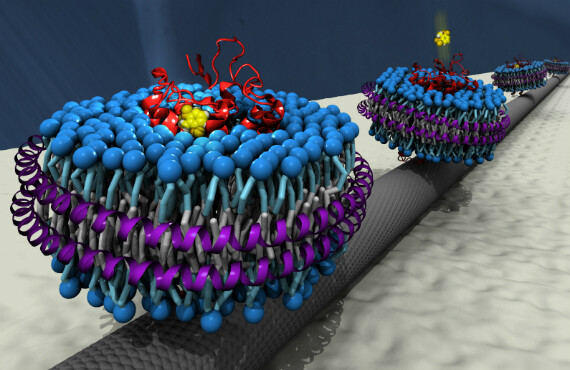Nano-Noses at Penn Science Cafe
Physicist Charlie Johnson connects the biological to the digital, using graphene and carbon nanotubes to turn chemical interactions into electrical signals. Johnson will explain how attaching biological structures, such as antibodies, to these flat or rolled-up lattices of carbon atoms has enabled him and his colleagues to build new kinds of sensors, detecting things like Lyme disease bacteria.
WHO: A. T. Charlie Johnson
Professor of Physics
Associate Chair for Undergraduate Affairs in the Department of Physics and Astronomy, University of Pennsylvania
WHAT: Penn Science Café talk, “Nano-Noses: Cyborg Devices for Detecting Molecules”
WHEN: Tuesday, July 23, 6-7 p.m.
WHERE: World Café Live Upstairs, 3025 Walnut St.
Johnson will also talk about his latest project—using olfactory receptors, normally found in the nose, to "smell" volatile organic compounds associated with certain cancers—and what the future holds for nanotubes and other next-generation nanotech materials.
The talk is part of the Science Café, a free public-lecture series presented by the School of Arts and Sciences and the Office of University Communications that takes science scholarship out of the lab for a night on the town. Café events are free and open to the public, but reservations are encouraged and can be made through Gina Bryan at 215-898-8721 or bryangm@upenn.edu.
Menu items will be available for purchase.








